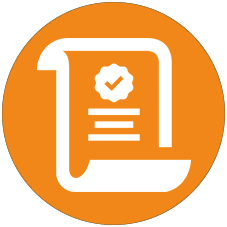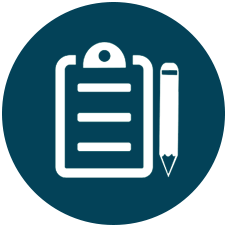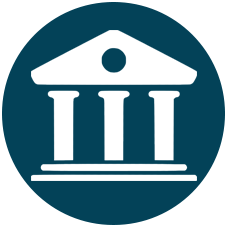Bachelor of Engineering
Undergraduate Programme

Duration
4 years
8 Semesters

Important Date
Important Date

About Programme
Information Science and Engineering is a discipline that includes theories, standards, methods and innovations of various domains like mathematics, cognitive science and information theory to solve complex IT problems. Information Science Engineering focuses on collecting, categorizing, strategizing, and storage of information. It also throws light on how to analyze and interpret the raw data. It is an area of professional practice that addresses the effective communication between information in the context of social, organizational, and individual needs in order to build the software or embedded applications for societal benefit. ISE course helps you to acquire concepts such as programming, Algorithms, Data Structures, File Structures, Networks, IoT and its applications, Object Oriented Concepts, Software Testing, Machine Learning, Artificial Intelligence and more.
The Information Science and Engineering professionals will be able to design, create and implement software applications to solve real-world problems. They use the latest tools and technologies to meet the industry requirements. They can figure out how to evaluate the ethical, legitimate, proficient and social standards of engineering knowledge and practices. ISE professionals can also showcase their expertise in mobile and distributed application development, web/ecommerce development, database administration, computer hardware, networking, education and training and decision support systems using machine learning concepts with the help of latest tools and technologies.

Programme Overview
After 2/3-year of graduation, the graduates will have the ability to:
- Analyse, design, and implement solutions in the field of Information Science and Engineering and adapt to changes in technology by self-learning
- Work effectively as an individual and in a team, exhibiting leadership qualities to meet the goals of the organization
- Keep abreast with the technology and pursue higher education
- Work with professionalism to meet societal needs along with concern for the environment
Engineering Graduates will be able to:
1. Engineering knowledge: Apply the knowledge of mathematics, science, engineering fundamentals, and an engineering specialization to the solution of complex engineering problems
2. Problem Analysis: Identify, formulate, review research literature, and analyze complex engineering problems reaching substantiated conclusions using first principles of mathematics, natural sciences, and engineering sciences.
3. Design/Development of Solutions: Design solutions for complex engineering problems and design system components or processes that meet the specified needs with appropriate consideration for the public health and safety, and the cultural, societal, and environmental considerations
4. Conduct Investigations of Complex Problems: Use research-based knowledge and research methods, including design of experiments, analysis and interpretation of data, and synthesis of the information to provide valid conclusions
5. Modern Tool Usage: Create, select, and apply appropriate techniques, resources, and modern engineering and IT tools, including prediction and modeling to complex engineering activities with an understanding of the limitations
6. The Engineer and Society: Apply reasoning informed by the contextual knowledge to assess societal, health, safety, legal and cultural issues and the consequent responsibilities relevant to the professional engineering practice
7. Environment and Sustainability: Understand the impact of the professional engineering solutions in societal and environmental contexts, and demonstrate the knowledge of, and need for sustainable development
8. Ethics: Apply ethical principles and commit to professional ethics and responsibilities and norms of the engineering practice
9. Individual and Team Work: Function effectively as an individual, and as a member or leader in diverse teams, and in multi-disciplinary settings
10. Communication: Communicate effectively on complex engineering activities with the engineering community and with society at large, such as, being able to comprehend and write effective reports and design documentation, make effective presentations, and give and receive clear instructions
11. Project Management and Finance: Demonstrate knowledge and understanding of the engineering and management principles and apply these to one’s own work, as a member and leader in a team, to manage projects and in multi-disciplinary environments
12. Life-long Learning: Recognize the need for, and have the preparation and ability to engage in independent and life-long learning in the broadest context of technological change
ISE graduates will be able to:
1. Analyze, design, develop and test software solutions using structured and object oriented approach
2. Design, develop and optimize solutions for information systems employing fundamentals of system hardware & software, graph theory, finite automata, data storage and communication networks
The career opportunities for the students of Information Science and Engineering have broadened. Looking at the present trends, a few have been listed below:-
- A Data Base Administrator focuses on data and meta data management systems.
- A Cyber Security Consultant emphasizes on the security required in digital transactions.
- IT consultant is a technical specialist who focuses on integrating information technology into business and showing clients how to use IT more efficiently to help reach their objectives and targets.
- A multimedia programmer creates products that can be used online and on a variety of other platforms, such as DVDs, mobile phones and computer games.
- A Testing Engineer is required to test the product or system fully to ensure it function properly and meet the business needs.
- A Systems analyst may serve as change agents who identify the need for organizational improvement. He designs systems to implement the changes and also train others to use the systems.

Why BNMIT for this course ?
1. The Department of ISE has an amalgamation of experienced and distinguished faculty members and a state-of-the art infrastructure facility.
2. The faculty members of ISE are either doctorates or pursuing their Ph.D in the latest technological fields like Machine Learning, Artificial Intelligence, Big Data, Computer Vision, and Network Security. Students will be guided best by these faculty members to take up innovative projects in relevant fields.
3. The Department encourages the students to be multifaceted by allowing them to participate in technical, cultural and sports activities
4. The Department offers a friendly and cordial atmosphere for the students where they feel comfortable to interact with the faculty members so as to improve and utilize their talents to the best.

Programme Curriculum
1st Semester (Chemistry Group)
| Course Code | Course |
| 18MAT11 | Calculus and Linear Algebra |
| 18CHE12 | Engineering Chemistry |
| 18CPS13 | C Programming for Problem Solving |
| 18ELN14 | Basic Electronics |
| 18ME15 | Elements of Mechanical Engineering |
| 18CHEL16 | Engineering Chemistry Laboratory |
| 18CPL17 | C Programming Laboratory |
| 18EGH18 | Technical English-I |
2nd Semester (Physics Group)
| Course Code | Course |
| 18MAT21 | Advanced Calculus and Numerical Methods |
| 18PHY22 | Engineering Physics |
| 18ELE23 | Basic Electrical Engineering |
| 18CIV24 | Elements of Civil Engineering and Mechanics |
| 18EGDL25 | Engineering Graphics |
| 18PHYL26 | Engineering Physics Laboratory |
| 18ELEL27 | Basic Electrical Engineering Laboratory |
| 18EGH28 | Technical English-II |
3rd Semester
| Course Code | Course |
| 18MAT31 | Transform Calculus, Fourier Series And Numerical Techniques |
| 18CS32 | Data Structures and Applications |
| 18CS33 | Analog and Digital Electronics |
| 18CS34 | Computer Organization |
| 18CS35 | Software Engineering |
| 18CS36 | Discrete Mathematical Structures |
| 18CSL37 | Analog and Digital Electronics Laboratory |
| 18CSL38 | Data Structures Laboratory |
| 18KVK39 | Vyavaharika Kannada (Kannada for communication)/ |
| 18KAK39 | Aadalitha Kannada (Kannada for Administration) |
4th Semester
| Course Code | Course |
| 18MAT41 | Complex analysis, probability, and statistical methods |
| 18CS42 | Design and Analysis of Algorithms |
| 18CS43 | Operating Systems |
| 18CS44 | Microcontroller and Embedded Systems |
| 18CS45 | Object-Oriented Concepts |
| 18CS46 | Data Communication |
| 18CSL47 | Design and Analysis of Algorithm Laboratory |
| 18CSL48 | Microcontroller and Embedded Systems Laboratory |
| 18CPH49 | Constitution of India, Professional Ethics and Cyber Law |
5th Semester
| Course Code | Course |
| 18CS51 | Management, Entrepreneurship for IT Industry |
| 18CS52 | Computer Networks and Security |
| 18CS53 | Database Management System |
| 18CS54 | Automata theory and Computability |
| 18CS55 | Application Development using Python |
| 18CS56 | Unix Programming |
| 18CSL57 | Computer Network Laboratory |
| 18CSL58 | DBMS Laboratory with mini project |
| 18CIV59 | Environmental Studies |
6th Semester
| Course Code | Course |
| 18IS61 | File Structures |
| 18IS62 | Software Testing |
| 18CS63 | Web Technology and its applications |
| 18CS64X | Professional Elective -1 |
| 18CS65X | Open Elective –A |
| 18ISL66 | Software Testing Laboratory |
| 18ISL67 | File Structures Laboratory with mini project |
| 18CSMP68 | Mobile Application Development |
| — | Internship |
| Professional Elective -1 | ||
| Course code under18XX64X | Course Title | |
| 18CS641 | Data Mining and Data Warehousing | |
| 18CS642 | Object Oriented Modelling and Design | |
| 18CS643 | Cloud Computing and its Applications | |
| 18CS644 | Advanced JAVA and J2EE | |
| 18IS645 | Information Management System | |
| Open Elective –A (Not for CSE / ISE Programs) | ||
| 18CS651 | Mobile Application Development | |
| 18CS652 | Introduction to Data Structures and Algorithms | |
| 18CS653 | Programming in JAVA | |
| 18CS654 | Introduction to Operating System | |
7th Semester
| Course Code | Course |
| 18CS71 | Artificial Intelligence and Machine Learning |
| 18CS72 | Big Data Analytics |
| 18CS73X | Professional Elective – 2 |
| 18CS74X | Professional Elective – 3 |
| 18CS75X | Open Elective –B |
| 18CSL76 | Artificial Intelligence and Machine Learning Laboratory |
| 18CSP77 | Project Work Phase – 1 |
| — | Internship |
| Professional Elective – 2 | ||
| Course code under 18CS73X | Course Title | |
| 18CS731 | Software Architecture and Design Patterns | |
| 18CS732 | High Performance Computing | |
| 18CS733 | Advanced Computer Architectures | |
| 18CS734 | User Interface Design | |
| Professional Electives – 3 | ||
| Course code under 18CS74X | Course Title | |
| 18CS741 | Digital Image Processing | |
| 18CS742 | Network management | |
| 18CS743 | Natural Language Processing | |
| 18CS744 | Cryptography | |
| 18CS745 | Robotic Process Automation Design & Development | |
| Open Elective –B (Not for CSE / ISE Programs) | ||
| 18CS751 | Introduction to Big Data Analytics | |
| 18CS752 | Python Application Programming | |
| 18CS753 | Introduction to Artificial Intelligence | |
| 18CS754 | Introduction to Dot Net framework for Application Development | |
8th Semester
| Course Code | Course |
| 18CS81 | Internet of Things |
| 18CS82X | Professional Elective – 4 |
| 18CSP83 | Project Work Phase – 2 |
| 18CSS84 | Technical Seminar |
| 18CSI85 | Internship |
| Professional Electives – 4 | |
| Course code under 18CS82X | Course Title |
| 18CS821 | Mobile Computing |
| 18CS822 | Storage Area Networks |
| 18CS823 | NoSQL Database |
| 18CS824 | Multicore Architecture and Programming |

How To Apply ?
- Admission for the first year of the course shall be opened to the students who have passed the two years Pre-University Examination (Science) conducted by Karnataka State Pre-University Board or 10 + 2 School Programme of the Central Board (CBSE / ICSE), New Delhi with Physics, Chemistry and Mathematics as optional subjects and English as a subject of study or those who have passed any other examinations recognized by the VTU as equivalent there to.
- The admission to college is through the Entrance Tests, Common Entrance Test (CET) conducted by Karnataka Government & Consortium of Medical, Engineering and Dental Colleges of Karnataka COMEDK. The students with meritorious ranking are considered for admissions.
- Candidates other than those from Karnataka are required to obtain Eligibility Certificate from VTU, Belagavi.
- The Eligibility norms are periodically fixed by the VTU with all relevant details of Academic Eligibility, Recognised Equivalent Courses for admissions to UG Courses as well as PG Courses and Institutions recognized for eligibility. The full details are available on the Visvesvaraya Technological University website: www.vtu.ac.in
- Admission through Management Quota:
Candidates should have passed with a minimum aggregate of 45% marks in Physics, Chemistry and Mathematics (PCM) and should have passed these subjects individually. Physics, Mathematics and Chemistry are compulsory subjects.

